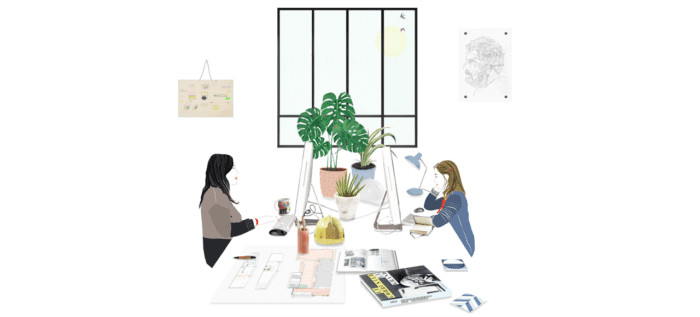The beginnings
- tales
- /

Not sure if for better or worse, the truth is that we have started our professional career in a post-post crisis stage. In a way, we take a kind of an optimistic approach, since it allows us to look at it in a different way. Not with anxiety, as those who were at the top of their careers in the pre-crisis period, and who lived the crisis and post-crisis with distrust, but (at least that is our intention) with good judgment and an appropriate distance, trying to avoid those mistakes and knowing that being rigorous and committed are needed qualities for every architect who wants to have a good impact in the society.
We architects have been trying for years to clean up our image, to show that we are not as people say we are. For ordinary people, architecture is a reviled discipline and, in some way, they are right. We have always thought that architects suffer the worst kind of corporatism. In a way, they turned the blind eye avoiding a minimum of self-criticism. Even, in some moments, they have helped to preserve the “nouveau riche” attitude, that has a tittle or even nothing to do with architecture.
So, what happens after the long time stop in our field, when thinking about creating new cities, new houses…? It seems that, little by little, it is accepted the idea that architects not only build things, that they build just a little or even that architecture means something more than building. This is something good, but we cannot forget that we also need architects who in fact build. And they need to do it properly, taking the situation under architecture’s perspective.
However, it seems that nowadays the material is more important than the spatial. Accordingly, if we attend only to the duality of what is beautiful or ugly, fashionable or demodè, not paying attention to the qualities that link closely to the spacial, we will loose the qualities of the material, such as sensitive attitude, textures, touch, perception or well-being, which makes us move away from its essence.
All of this is easy to understand, for the intangible of an intellectual act. But we must not forget that, as architects, our aim is to find something beyond what is known or usual. We must be able to move within the limits of a theoretical framework, which promotes the ability of living in a different way. We must work a previous thinking, intrinsic to architecture, those “ideas which are independent of the shape” as Luis Moreno Mansilla said and read through Emilio Tuñón in his tribute “El tiempo que escapa entre los dedos” in Circo magazine, after the unexpected death of his friend.
Architecture must be, and it is indeed, more than just economy, more than just building, more than just material… Architecture is all of that, but it comes along with an idea that cares about welfare, spatiality and comfort.
We believe that it is possible to build this thought, in order to make it real the idea that architecture is more than building, and that it offers additional qualities linked to certain social and cultural values, but in spite of the conceptual exercises, it still gives answers to specific questions. In our opinion, these specific questions result in working on a proximity architecture, which allows thinking at a small scale and confirming that well-defined concise actions can bring substantial improvements. Working from the knowledge given by this proximity lets us act on the detail, in order to enable affective relationships with the environment that is being projected.
Souto de Moura says that architecture has to do with life, not (only) with a design or geometry, and its aim is to solve a problem related to reality. To Zumthor, the strength of a good architectural project brings together feelings and reason. A good project must be rational and sensory. Let’s listen to the experts, those whom we admire. And let’s start.

